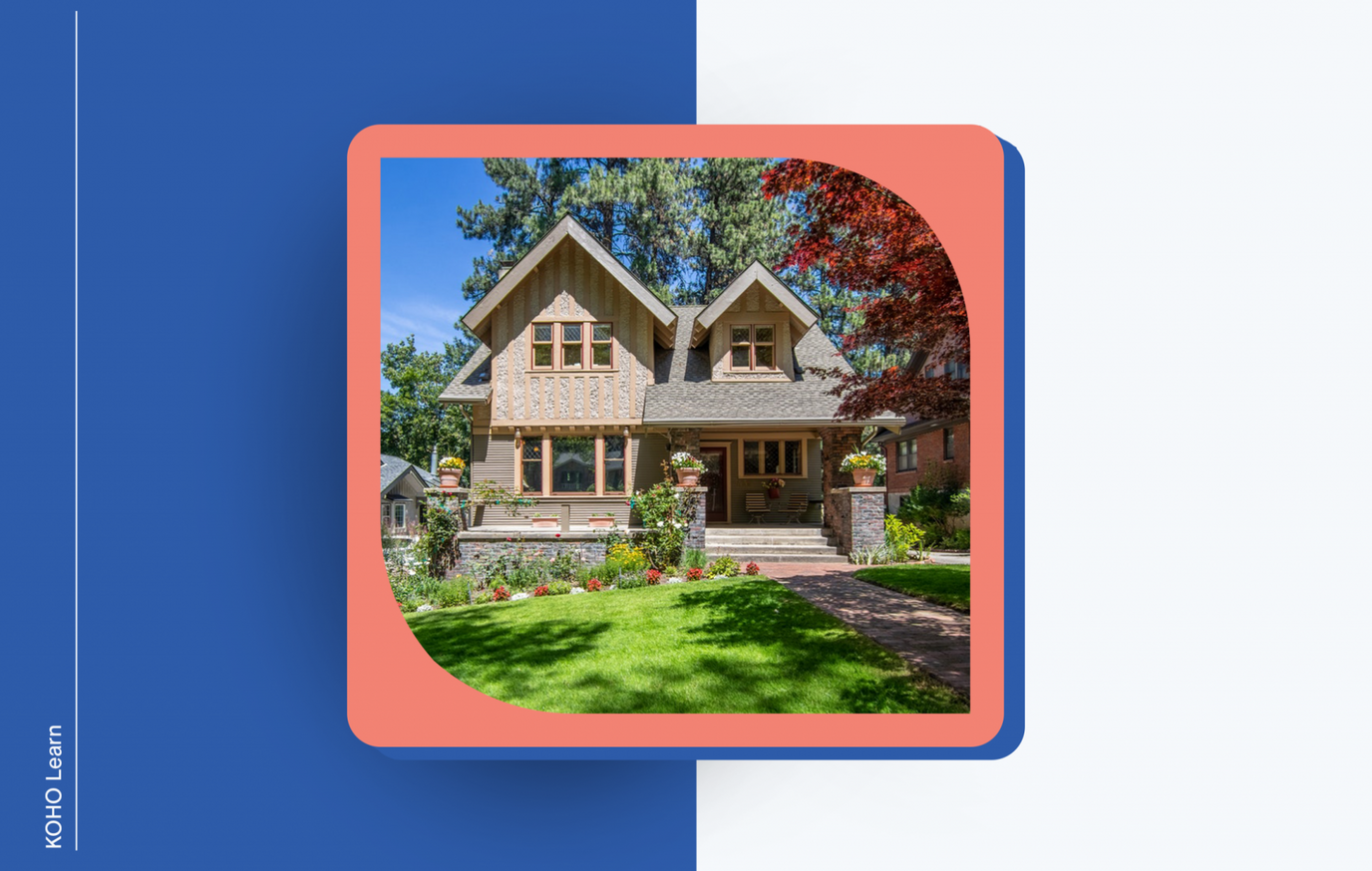Back
The housing market in Toronto vs Calgary: What you need to know
8 min read

Written By
Yekaterina Galanova
Rounding it up
Calgary, Alberta is close to the Rocky Mountains. It’s 3 hours away from the Western region of the United States, with a cowboy culture influence.
Toronto is a city located in Ontario, and is home to the country’s main financial hub.
Both cities are incredibly cosmopolitan, with many different languages. A quarter of the population in Calgary and half in Toronto are immigrants.
Housing markets are competitive in both cities but Toronto is even more so.
Introduction
Buying a home is a financial aspiration for many but it’s not necessarily the right choice. In order to qualify for buying a home, you must first ensure that you have good enough credit to qualify for a mortgage, have enough savings in your emergency fund, and have a stable income. Whether you’re qualified to buy a home also depends on your lifestyle and personal preferences, and in some cases, it may actually be better to rent.
Whether buying or renting is the best financial decision for you also depends on the city where you live. Housing markets differ from place to place. There are various factors that decide how affordable housing is in a particular market, which include the demand for housing and the overall desirability of a particular location.
There are many cities to compare in this regard. Calgary and Toronto are two to start. Both are well-known cities located on opposite sides of Canada. How do the housing markets compare in these two major cities? Let’s explore.
General overview of Calgary, as a place to live
SPEND SMARTER. SAVE FASTER
There are many factors that make living in Calgary unique. It’s Alberta’s most populous city, with an estimated 1.4 million people living there. It’s also Canada’s fifth largest city, with an average population that is younger than the rest of Canada. The young population, with an average age of late 30s, contributes to a hip and vibrant culture.
Calgary is a city with an arid climate, so the air stays dry year-round, probably in part because the city is located above sea level, at around 1 kilometer or 3445 feet to be exact. Likely in part due to its elevation and the arid climate, Calgary is also Canada’s sunniest city, with an average of 333 days of sunshine per year and low rainfall. The city also has a reputation of being a very clean and, at one time, was voted the cleanest city in the world, back in 2007.
Calgary is closely located to the Rocky Mountains, with the range serving as a backdrop for the entire city. It’s about three hours away from the US border and is home to some of the same cultural traditions of the Western region of the United States, including rodeos, cowboy boots, and cow festivals, earning it the occasional nickname of CowTown. The entire province of Alberta tends to lean conservative in its political values and its largest industries are oil and gas and construction. Overall, Calgary is a diverse city, with a quarter of the total population of Calgary being foreign-born. Though the city is not cheap in absolute terms, it boasts a high quality of life, with a variety of dining, sports, and entertainment offerings.
The housing market in Calgary
Calgary is not as notoriously expensive as some of the other cosmopolitan cities in Canada, say, Toronto or Vancouver, but it is still somewhat expensive. If you are looking to rent, for example, the average price to rent a one-bedroom apartment in Calgary is $1,231, and the price of an average two-bedroom to rent is $1580. As in many cosmopolitan cities where many want to live, the supply of housing is less than the demand. This demand drives prices up, and so housing costs remain high.
While the housing market has been hot nationwide for the last several years, including in Calgary, t is finally showing signs of cooling down. This means lower housing prices for those looking to buy, and possibly also for those looking to rent. The potential for decreased housing prices may sound like good news to those seeking a lower cost of housing but it does not come without caveats.
The cost of housing has remained high the last few years in part because the interest rates on mortgages have been low. Assuming that these two conditions are contingent on one another, then falling housing prices would mean rising interest rates for borrowers. This means that if you are looking to buy a house, the price may be less. However, the interest rate on your mortgage may be more. So there is a real chance that you would end up paying a lot in interest over time, which would drive the total cost of your house up.
Though the housing market in Calgary is indeed cooling down, different types of homes in Calgary continue to increase in price, outpacing inflation. For example, the price of a condo has gone up by 3% to an average of $259K, and the price of a single-family-home has increased by 7% this past year to an average of 591K. Without considering the size of the home or the type, the average cost of all homes sold in Calgary is 477K, according to Zolo, as of September 2021. According to the source, the average days on the market for most homes being sold in Calgary is 37 days.
Rents in Calgary are also continuing to rise, with an average price increase of 7% as of September 2021. From this, it is conclusive that housing prices in Calgary remain relatively high, though generally not as high as some of the more popular cities, such as Toronto or Vancouver.
General overview of Toronto, as a place to live
Toronto, the provincial capital of Ontario, is the largest city in all of Canada. With its six million residents, it’s incredibly multicultural, with an average of 1 out of 2 residents hailing from a place outside of Canada. And it’s still growing. By 2025, Toronto expects to have a population of 7.7 million. There are a total of 140 languages spoken in the city and approximately 240 neighborhoods. As the largest city in Canada, Toronto is Canada's epicenter for various major industries, including finance, entertainment, and commerce.
SPEND SMARTER. SAVE FASTER
Though Toronto is not as cold as some of Canada’s more northern cities, it still gets chilly, sometimes with temperatures as cold as -30 celsius, and snow and ice sometimes lasting until May. The city has a public transit system and bicycling is popular, more so than driving. It offers a lot to do, with gastronomic delights, sports teams, cultural attractions, and nightlife. During its warmer months, the city also offers a lot of natural landscape to enjoy in the form of parks, with 120 miles of trails available for walking and a total of 1600 parks for relaxation, including The High Park and The Toronto Music Garden, to name a couple.
Toronto sits high on many quality of living indexes, so it remains one of the most desirable places to live in not just Canada but in all of North America and even the world.
The housing market in Toronto
Whether you’re looking to buy or rent, the housing market in Toronto remains incredibly competitive. As a matter of fact, the housing market in Toronto has been hotter than normal as of late, with August 2021 being the best month for gross revenue of home sales of all time. A few factors continue to exacerbate a low supply of housing in Toronto, including prospective buyers who want single-family homes to more comfortably work at home, continued immigration, population growth, and low interest rates for mortgage borrowers.
For buyers looking to purchase a home in Toronto, it’s worthwhile to note that the turnover of housing in Toronto is very quick. On average, a property stays on the market for an average of a mere 17 days. All that not including the relatively high cost of the average home.
More specifically, the average cost of a home in Toronto is a little over a million dollars, which is a 13% increase from the average price of a home last year. The cost of single-family homes, in particular, has increased 21% from last year. The cost of condos has seen the most modest increase of 9% from last year. The largest increase in the cost is seen in the price of townhomes, which have increased by 32%.
Though a seemingly altruistic program, the 2021 expansion of the First Time Home Buyer Program of Ontario has the potential to drive the cost of housing in Toronto even higher. The program enables first-time homebuyers in Ontario to borrow 5-10% of the property’s value from the federal government. The loan is intended to go towards the down payment and is completely interest free. Under this program, you can also be eligible for an exemption from the land transfer tax of up to $4000. Given that the average price of a down payment for a house in Toronto is $200,000 and $100,000 for a condo, this program is bound to be very useful to many Canadians. However, it may also have the unintended consequence of driving home prices even higher because it makes obtaining a mortgage easier.
If you are looking to rent in Toronto, you are also bound to encounter high housing costs. The average one bedroom costs $1989 per month to rent and the average two bedroom costs an even higher $2628 per month. Only Vancouver’s rental market is more expensive.
Which one is right for you: Calgary or Toronto?
Toronto is one of the hottest housing markets in Canada. The average home price is over a million dollars and homes do not stay on the market for long. Toronto is the epicentre of Canada; it’s a hub for various major industries including art, entertainment, and finance and it is also a hip, thriving, and cosmopolitan city. It is a highly desirable place to live, so it is no surprise that the cost of housing remains high, whether you are looking to buy a home or rent one.
Calgary is a vastly different city on the opposite coast of Canada. The city has its own set of advantages and the cost of living, though cheaper than Toronto, is still relatively high. Regardless of where you want to live, the comparison between Calgary and Toronto is helpful as you begin to research different housing markets throughout Canada.

About the author
Yekaterina Galanova enjoys writing about personal finance, as well as aesthetic topics, though she is open to discovering new niches. She enjoys reading, traveling and beautiful landscapes.
Read more about this author